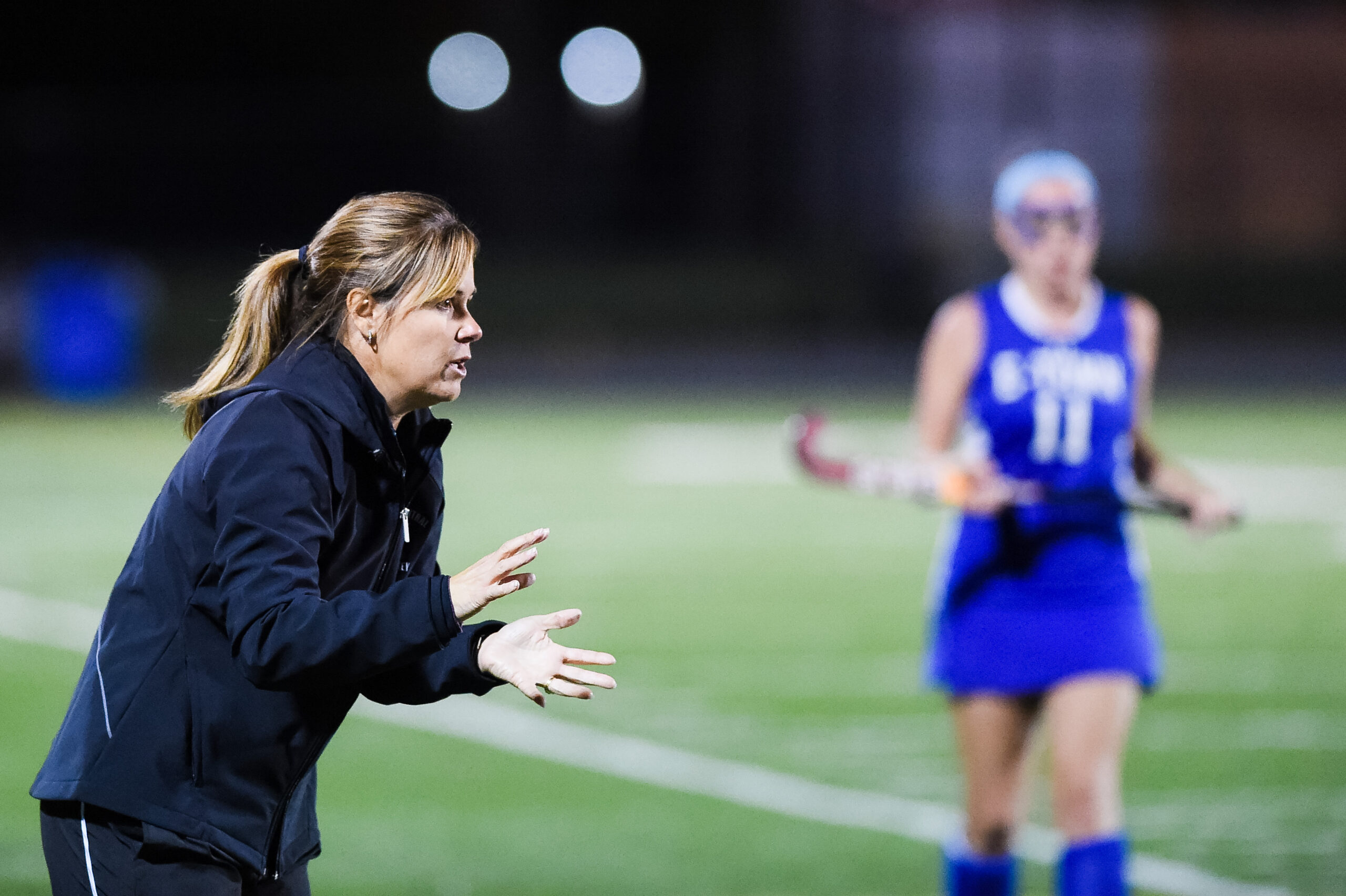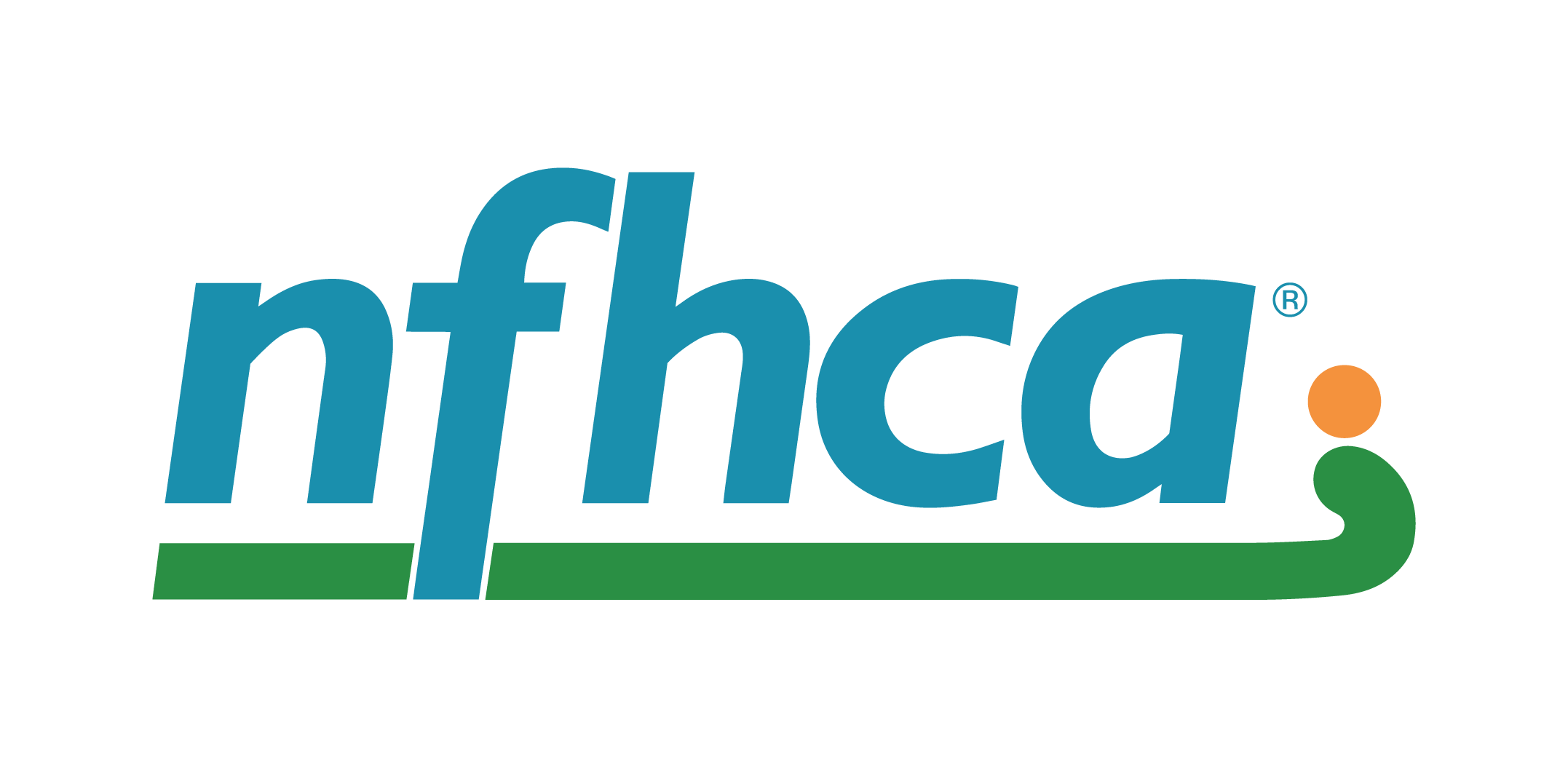Thriving Under Pressure – Tips on Keeping Your Cool!

By NFHCA sponsor, Keith Waldman of Optimal Performance Associates
Dealing with Pressure! We have all felt it, lived it, breathed it, and thought about it. Many athletes frequently go through periods of feeling an extra weight on their shoulders while trying to play the game they love. Dealing with pressure is a natural part of any competitive sport. Over the last 15 years I have had the opportunity to work with many teams focusing on building mental toughness and team chemistry. I have witnessed many teams achieve their dreams by having the ability to thrive under pressure while others fall short of their dreams and goals because of being overwhelmed with fear, anxiety, and feelings of pressure.
Many athletes/teams fall short of their goals because they experience performance anxiety and as a result they could not execute under pressure. Performance anxiety is frequently described as a decrease in athletic performance due to too much perceived stress. Perceived stress often increases in athletes on game day because (1) they have an audience and (2) they have extremely high expectations of their success. This type of stress is often based upon the way the athletes interpret the situation.
Pressure comes in many forms depending on the person and how an athlete “thinks” about the competition (Cohn 2006). Some sources of internal, self-inflicted pressure include:
- Expectations you place on yourself about winning
- Pressure to live up to the expectations from others (coach, family, fans) to succeed
- Thoughts underlying the fear of failure, such as having your hard work not pay off or telling yourself not to mess up.
- Pressure to perform well or lose your place on the team
- Pressure not to blow the game or not to let your teammates down
- Pressure to perform perfectly and not make any mistakes
Pressure is very specific to each athlete and his or her own beliefs and thoughts. However, one constant is that pressure makes athletes tense, cautious, and afraid to make mistakes. Instead of playing with freedom, exuberance, and confidence athletes will spend time trying to avoid mistakes and playing not to lose – a sure recipe for disaster.
Tips on Keeping Cool
Feeling nervous and experiencing butterflies before a big competition is not necessarily a bad thing. One of the biggest myths is that if you get nervous or feel anxious you will perform poorly. Actually, I view nervousness as a good thing. Athletes who have won Olympic gold medals & championships frequently talk about feeling nervous prior to a competition and without the nerves they would not have been successful. Experiencing jitters/butterflies and utilizing them in a positive way can help you propel yourself and your team towards greatness. Here are some tips that will help you thrive under pressure.
Realize that it’s OK to be nervous and prior to a competition it is a natural part of the competitive process. Your butterflies are your body telling you it’s preparing you for what’s ahead and that you are ready to perform. The mentally tough athlete views nerves as a good sign and does not give in to it.
Discipline your mind from thinking unwanted negative thoughts. These unwanted thoughts can lead you towards the panic zone. Examples of such unwanted thoughts are I’m a nervous wreck; I’m afraid I’ll blow it; I don’t want to get beat, or I know this is going to be a disaster. During these times you may experience physical symptoms such as nausea, discomfort in the stomach, rapid heartbeat, muscle tension, and even difficulty breathing. In addition, your mind may begin to race, you might freeze and forget what you are supposed to do or say, you may feel out of control and make bad choices, or you may rush because the feelings of panic are unpleasant. Keep the self-talk and body language positive, confident, and calm.
Give yourself a steady diet of energizing images and thoughts. Practice the power of positive thinking. Positive thinking does not guarantee competitive success but it’s something that each athlete can control and will help keep those butterflies flying in formation. Many elite athletes/teams use visualization techniques as part of training and competition. Visualize yourself/team as a machine with power, a greyhound that moves quickly, or as an unstoppable force making the plays. If you feel tired imagine that you are carrying a spare fuel reserve with you and think about pouring the extra fuel into your tank. Try different images to find the one that will give you the right feeling for the task you are facing.
Focus on the Task at Hand and Remember WIN – (WHAT’S IMPORTANT NOW)! Do not over obsess about a mistake you made or shots that you missed. Learn from that mistake and move on quickly. Field hockey is a game of mistakes and it’s all about recovery. If you keep yourself mentally in the past you will be stuck in mental quicksand and you will lose concentration, focus, and confidence. If a mistake is made stay calm and shift your mental attention to the upcoming play. Letting go of the past, forgiving yourself for the error, and refocusing on the present moment are crucial for getting beyond the mistakes. I have found that simply focusing on your breathing rhythm can easily bring you back to the present moment.
Focus on the controllabes. Do not drag yourself down or waste energy trying to control things beyond your control such as the talent of the other team, bad officiating, the weather, field conditions, or fans. Focusing on the uncontrollables will bring you down and increase your anxiety levels. When in these situations remember to take a deep breath and focus on what you control. When you get in pressure situations, remind yourself to breathe deeply. For example, take a few deep breaths followed by positive affirmation.
Smile & Positive Body Language. The signal that smiling sends your body and subconscious is that things are fine. When you frown or show negative body language you are sending yourself a message that there’s a problem. Positive body language communicates confidence, and it will also help relax your teammates. This simple action will change your attitude in a split second. Perhaps that is all the time you need to relax back into your performance. Remember, smiling is contagious. I frequently tell field hockey players to write the letters SPS on their sticks as a reminder to Stay positive, and smile.
Create Motivating Statements/Power Words/Slogans. Create a special motivating word(s) or phrase that will FIRE you up and have special meaning for the team. This affirmation like statements will help keep you together towards a common cause. During times of self-doubt your power word can bring you back to that state of peak performance. Coaches/Player Tip: Think about a practice or game where you played awesome. Think of a word or phrase that captures this peak performance. This is your word of confidence. During times of self-doubt your word of confidence can bring you back to that state of peak performance.
Changing Negatives into Positives through Affirmations. Affirmations are positive self-statements that you focus on and repeat to yourself many times a day. An affirmation supports the way you want to view yourself and your abilities, or it supports a goal you want to achieve during a specific workout or competition. Affirmations are very powerful weapons you can use to combat negative self-talk. Affirmations will short circuit the negative self-talk. Examples of affirmations: “I choke under pressure” to “I always come through in the clutch”. “When things go badly, I fall apart” to “When the going gets rough, I hang tough”. “I can’t do anything right today,” to “I learn from my mistakes, and they make me stronger”.
In closing I think it’s important for each player to remember why they are playing field hockey. Hopefully, field hockey is the sport that the players LOVE and they are determined to get better every day. With practice, the above suggestions will help their game and players will learn to Stay Cool and “Thrive under Pressure”.
About the Author
Mr. Keith Waldman received his BA in Psychology at SUNY at Plattsburgh, a Masters in Social Work from the University of Michigan and a Master’s Degree in Sport Psychology from Temple University and he has extensive training in adventure education from Project Adventure Inc. Keith has been a frequent presenter at the NFHCA Convention and sponsors the NFHCA National Academic Squad. . Keith has been a popular speaker for many collegiate and high school athletic programs and conferences. He has conducted hundreds of workshops for sport teams and athletic departments across the nation, including State, Conference, and National Championship Teams. Keith has facilitated hundreds of exciting workshops for many K-12 schools and corporations focusing on professional development, team building, leadership, and social emotional learning. His passion and commitment as well as his educational and professional experience have enabled Keith to make a tremendous impact on many athletic, educational, and corporate teams. To receive more information about workshops for your school, team, or organization you can reach Keith Waldman at keith@opawinningteams.com.
NFHCA Blog Disclaimer
All content on this blog is for informational purposes only and should not be interpreted as a substitute for NCAA compliance or legal advice. The NFHCA recognizes that the accuracy of the content and opinions in this blog may change over time. The blog site may contain links to other websites or content belonging to or originating from third parties. Such external links are not monitored or endorsed by the NFHCA and the NFHCA does not control such external websites or their content. The NFHCA will not be held responsible for the content of any message from external websites or contributing authors.
AstroTurf is the Official Sponsor of the 2026 NFHCA Annual Convention. With over 50 years of experience and millions and millions of square feet of synthetic turf in use worldwide, AstroTurf products bring more technological expertise and real-world know-how to the game than any other brand.

